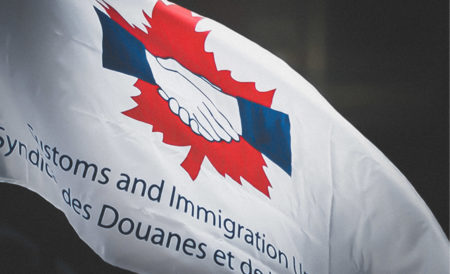On December 6, 1989, 14 young women were killed at l’École Polytechnique in Montreal simply for being women.
Since then, we have made gains in addressing gender-based violence, but almost 40 per cent of working women in Canada still experience violence in their homes, with ripple effects reaching the workplace and putting their jobs and co-workers at risk. Young, racialized and immigrant women, lesbian and bisexual women, trans and non-binary people, and women with disabilities experience higher rates of harassment and violence, and face more barriers in accessing services and support. Meanwhile, Indigenous women are still waiting for the federal government to take action in response to the Calls for Justice of the National Inquiry into Missing and Murdered Indigenous Women and Girls.
All of this continues to be amplified by repeated lockdowns and isolation due to the COVID-19 pandemic.
Paid universal domestic violence leave
Unions have successfully won paid domestic violence leave for federal employees across several provinces and territories, but more needs to be done for survivors working in other vulnerable sectors like health care, education and the hotel and service industry. PSAC also continues to fight for 10 paid days of universal domestic violence leave, so that all working people can access the support they need from their employers when they are trying to leave an abusive situation.
Sexual violence, harassment and misconduct in the federal workplace
Gender-based violence can also happen directly in the workplace. PSAC has been supporting and participating in the class-action lawsuit and ongoing external review on sexual misconduct and sexual harassment (including sexual violence) in Canada’s military. More than 18,000 people have already submitted claims to the class action, and current and former members of the Canadian Armed Forces and Department of Defence who experienced sexual harassment, assault, or discrimination can still submit their claim until January 24, 2022, under exceptional circumstances.
In honour of the 14 women whose lives were stolen on December 6, 1989, and the thousands of other women, girls, LGBTQ2+ and gender-diverse people who deserve safety and justice, it is time to take concrete action to end gender-based violence once and for all.
What you can do:
- If you or someone you know is experiencing abuse anywhere in Canada, visit ShelterSafe to find a shelter nearby and its 24-hour emergency phone number, including those that have formal inclusivity policies around sexual orientations and gender identities;
- Attend a webinar to learn more about International Labour Convention C-190, the first global treaty to recognize everyone’s right to work free from violence and harassment, and the impacts of gender-based harassment and violence on Canadian workers;
- Demand that the federal government launch a National Action Plan on Violence Against Women
- Join the call for 10 paid days of universal domestic violence leave;
- Support the Native Women’s Association of Canada’s campaign to #AnswerTheCalls for Justice of the National Inquiry into Missing and Murdered Indigenous Women and Girls;
- Learn more through our fact-sheet on domestic violence and COVID-19.
In memory of
Geneviève Bergeron
Hélène Colgan
Nathalie Croteau
Barbara Daigneault
Anne-Marie Edward
Maud Haviernick
Barbara Klucznik Widajewicz
Maryse Laganière
Maryse Leclair
Anne-Marie Lemay
Sonia Pelletier
Michèle Richard
Annie St-Arneault
Annie Turcotte
This article was first posted on the PSAC website.
To commemorate the National Day of Remembrance and Action on Violence against Women, the Canadian flag flying at the CIU National Office, in Ottawa, will be flown at half-mast from sunrise to sunset on December 6.






